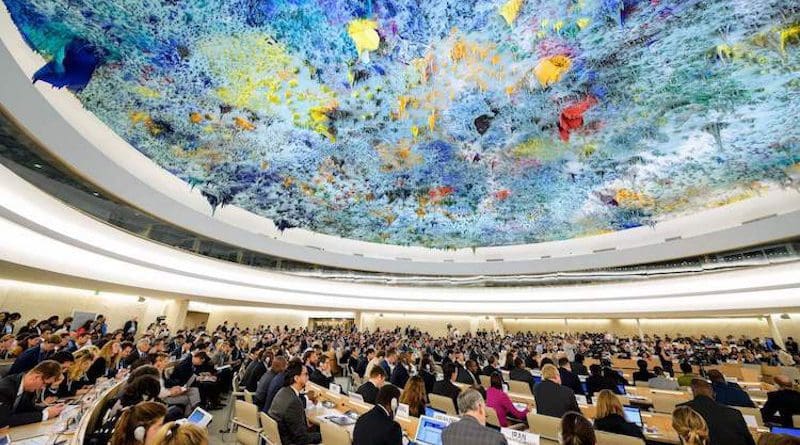Russia Loses Bid To Regain Seat On UN Human Rights Council – OpEd
At the United Nations in New York, Russia has lost its bid to regain a seat on the Human Rights Council, the UN rights body which is made of 47 members. The members are allocated by region, and each large regional group usually pre-selects its own candidates, which the General Assembly then typically approves.
They are elected for three years for a maximum period of two consecutive terms. Members are voted on by secret ballot by the General Assembly in New York.
The body was created in 2006 and is responsible for “promoting universal respect for the protection of all human rights and fundamental freedoms for all, without distinction of any kind and in a fair and equal manner,” according to the documents.
During the election for the 2024-2026 term on the UN Human Rights Council, Russia received 83 votes in its favor from the UN General Assembly’s 193 members. Russia was expelled from the council in April 2022 for violating the territorial integrity of Ukraine, and for alleged human rights abuses against Ukraine.
European countries are represented by Albania, Bulgaria, France and the Netherlands. Russia had competed with Albania and Bulgaria for the two seats on the Council that are reserved for Central and Eastern European countries.
In the secret ballot, Russia won 83 votes versus 160 for Bulgaria and 123 for Albania, which had competed against it in the same eastern Europe grouping for two seats on the Geneva-based Human Rights Council for a three-year term beginning on Jan. 1. China and Cuba were also among the winners vote, drawing objections from human rights defenders.
“UN member states sent a strong signal to Russia’s leadership that a government responsible for countless war crimes and crimes against humanity doesn’t belong there,” said Louis Charbonneau, United Nations director at Human Rights Watch.
Several reports say majority of the the United Nations have maintained that despite the suspension of its membership, Russia openly continues to commit war crimes and other atrocities, these could be described as an ugly stain on the United Nations organization.
“UN Member States have sent a strong response to the Kremlin on its aggression, war crimes, and atrocities committed in its full-scale invasion of Ukraine,” said Emine Dzheppar, Ukrainian first deputy foreign minister, in a statement on X, formerly Twitter.
Russia has outright denied such allegations and descriptions. Vassily Nebenzia, the Russian ambassador to the United Nations, insisted that there “are no beacons of democracy or rogue states, as is sometimes being portrayed. No member-state can claim to be immune from human rights violations. But the solution is to strengthen international regulation.”
The council opened an investigation in March 2022 into the Ukraine war and has accused Russian forces of violations that may constitute crimes against humanity. It had also committed a wide-range of crimes such as wilful killings, torture and the deportation of children.
In addition, the International Criminal Court has accused Russian President Vladimir Putin and Russia’s Children’s Rights Commissioner Maria Lvova-Belova of the war crime of illegally deporting hundreds of Ukrainian children. The Kremlin rejects the accusations and the court’s jurisdiction.
The elected 15 members of the Human Rights Council for the term 2024-2026: Albania, Brazil, Bulgaria, Burundi, China, Côte d’Ivoire, Cuba, Dominican Republic, France, Ghana, Indonesia, Japan, Kuwait, Malawi and The Netherlands.

